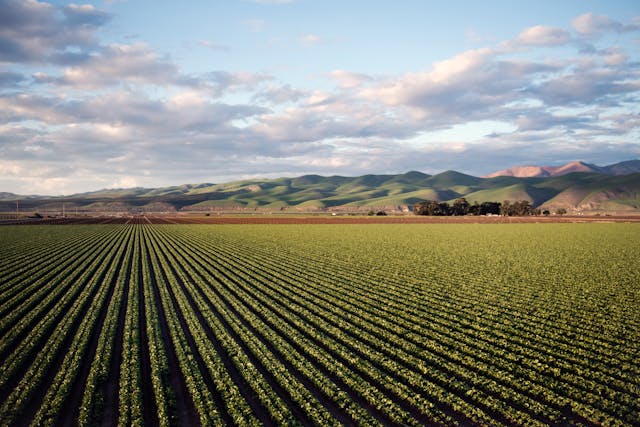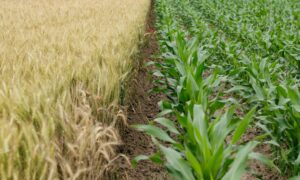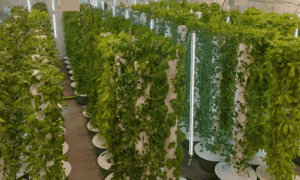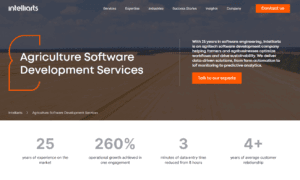Sophisticated next generation agroinformatics technologies are transforming global agriculture with new data-driven farming methods. This article explores the technologies that are empowering growers and helping to deliver food security for the 21st century. It also focuses on four leading companies whose innovation is making positive contributions across the wider spectrum of the food production and supply chain.
Next Generation Data-Driven Farming and Agriculture
Farmers have always depended on data to make informed decisions about crop and seed choices, planting and harvest times, and crop management (nutrition, irrigation and protection). Data is also essential for effective animal husbandry, resource management and general budgeting and financial planning. In the past, data resources were limited – and often of limited value – and there was a significant element of trial and error in agricultural decision making.
Rapid advances in big data and data analytics are empowering farmers on an unprecedented scale. A potent combination of realtime information, collected by IoT connected sensors and optics (including soil sensors, drones, satellites), historical weather and harvest data, and predictive analytics is transforming both field level agriculture and agronomical research and development.
Source US Department of Agriculture
Advances in agroinformatics are powering a new agricultural revolution. Farmers are increasingly able to manage ordinary plots of land or greenhouses as smart farming operations. Data-driven apps and platforms enable the implementation of automation and robotics, while precision nutritional, irrigation and biocide solutions increase crop yields, while reducing inputs and overheads, and allowing an unprecedented level of risk management.
An interesting example of how these technologies are utilized at field level is the use of digital twins. Agronomists can create an exact digital replica of a functioning system, combine historical data with realtime data, and then employ predictive analytics to “game” a variety of scenarios. Farmers can anticipate the performance of crops under varied climatic conditions, the risk of pests and crop disease, or assess strategies for regenerative agriculture with a high level of accuracy.
4 Agroinformatics and AgTech Innovators
John Deere (NYSE: DE)
John Deere is one of America’s oldest manufacturers of farm machinery and vehicles. The company is best-known for its iconic tractor brands, but John Deere is pioneering data technologies to deliver advanced solutions for farmers. The John Deere Operations Center is an online farm management system that users can access through mobile devices to obtain functional insights and coordinate farm management. The Operations Center unifies machine telematics and field data to allow data-based decision making.
The John Deere Operations Center also provides an element of predictive analytics, allowing users to analyse previous seasons’ results and factor them into future planning. The Operations Center is an example of a major company drawing on its understanding of its client base, and existing expertise, to create viable technological solutions that expand beyond its core product portfolio.
ICL Group (NYSE: ICL) (TASE: ICL)
ICL Group has emerged as one of the world’s leading specialty minerals companies and is currently one of the largest fertilizer manufacturers by volume. Agmatix is an agro informatics company that is part of ICL’s AgTech digital solutions. Agmatix’s Digital Crop Advisor is a data-driven support system for agronomists that provides a map interface incorporating two types of satellite imagery – Sentinel-2 and Landsat 8. The mapping enables localized recommendations that can be tailored to a variety of parameters to create plans for precision agriculture.
In-season and pre-season soil analyses can also be added to the Agmatix Digital Crop Advisor for integrated crop nutrition management. The digital tool enables users to monitor and understand soil characteristics, yield uptakes, and factor previous crop performance and environmental impacts into planning. Agronomists can also create detailed carbon footprint assessments for the development of sustainable production processes.
Climate FieldView, Subsidiary of Bayer (FWB: BAYN)
Climate FieldView offers a suite of data-based technologies to provide farmers and agronomical professionals with tools to gather crop data, perform realtime analytics, evaluate pressures on individual fields or plots, and prepare tailored solutions to boost crop yields. Climate FieldView aggregates satellite and in-field data to produce predictive yield maps and to alert users to disease and pest risks. Farmers can also receive alerts about potentially damaging weather events and can accurately monitor rainfall accumulation and crop health.
One of the advantages of Climate FieldView is that its various solutions are designed to be compatible with a wide range of devices and major partners (including the John Deere Operations Center, Conservis and Bushel Farm). This pragmatic approach to interoperability adds to the user-friendly attributes of Climate FieldView data‑driven farming technologies and extends their global reach.
Satellogic, Inc. (NASDAQ: SATL)
Satellogic is – quite literally – a space age company that is making an important contribution to agroinformatics. Satellogic operates a commercial fleet of earth-observation satellites that provide imagery and geospatial analysis to a variety of sectors, including agriculture. Because Satellogic maintains a constellation of satellites in orbit, it can deliver frequently updated high resolution imagery. Agronomists can gain a clear picture of the situation at field level and make data-based decisions about nutrition, irrigation and crop protection.
The use of commercial satellites is an emerging trend in agroinformatics that is likely to grow in importance as launch vehicle technologies improve and the satellite sector becomes more scalable. The combination of satellite imagery, combined with AI-powered analytics and digital agronomy platforms is a game changing asset for the global farming industry and a powerful tool for achieving food security.
Conclusion: Agroinformatics is Securing the Future of Farming
Agroinformatics and data‑driven farming – combined with wider AgTech advances – is rapidly putting farming on a par with the industrial and commercial sectors in terms of data-based decision making, and the flexible integration of precision processes. Even smallholders increasingly have the capacity to operate basic agricultural plots or greenhouses as smart operations. Agroinformatics is playing a key role in the push towards global food security and sustainability, and the development of prosperous and resilient rural economies that will attract and retain future generations of farmers.



































